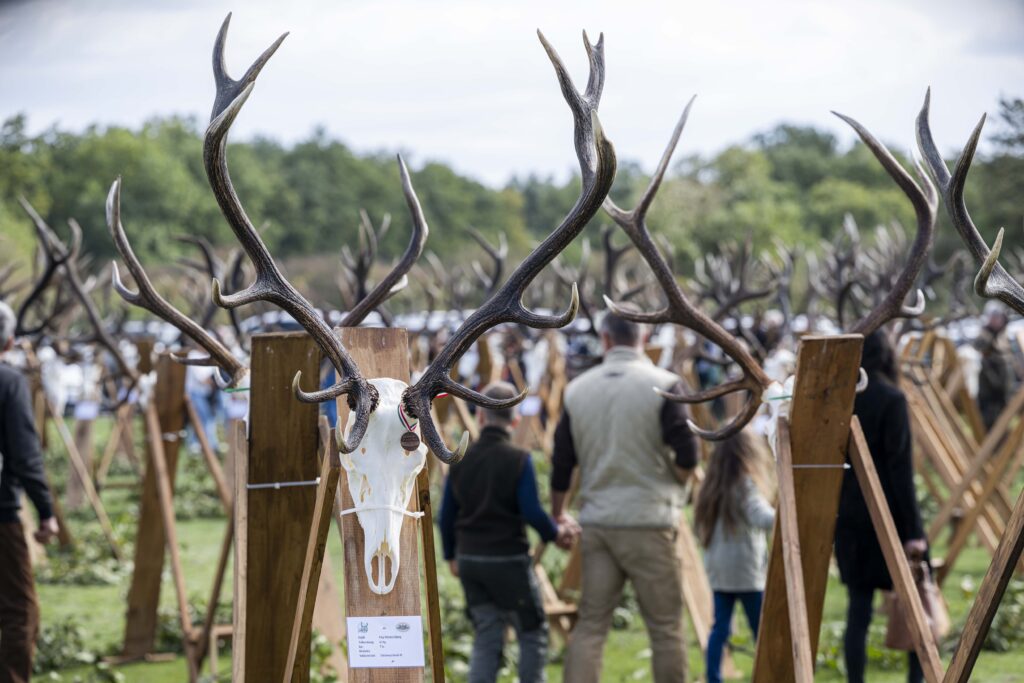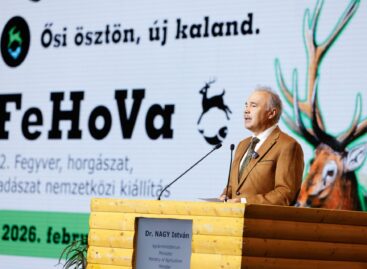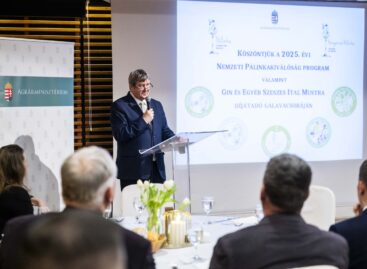Hungarian wildlife management is at the forefront of the world
Hungarian game management is among the most advanced in Europe and the world, which we can rightfully be proud of – said Péter Zambó, State Secretary for Forests and Land Affairs at the Ministry of Agriculture, at the ceremonial opening of the 2025 National Hunting Day in Göbös-major, Győr-Moson-Sopron County.

Péter Zambó, National Hunting Day, Major Göbös
The State Secretary highlighted that the record-breaking red deer, mouflon and fallow deer trophies of the past year also prove the effectiveness of the successful habitat development, population regulation, modern professional and gene conservation efforts of Hungarian game management.
Péter Zambó emphasized that game species represent a renewable natural resource, the wise utilization of which is of fundamental importance in order to maintain the ecosystem. Hunting itself is an important and indispensable tool for this sustainable game management.
Our country’s game population is an outstanding natural treasure, which we must preserve for future generations. It is important to maintain a healthy game population with good genetic values, whether it is large or small game species, he underlined. That is why, in the course of game management based on ecological knowledge, we aim to preserve biodiversity, increase habitat protection, and implement quality regulation instead of a quantitative approach, and sustainable management. In addition to the recreational significance of hunting, it is an important guarantee of the maintenance, health, functionality, and primarily adaptation to climate change of the ecosystem, said Péter Zambó.
Speaking about the challenges and future tasks, he said that thanks to the effective and coordinated control, the foot-and-mouth disease epidemic was curbed at the cost of great sacrifices, which is why the virus did not appear in the big game population. Due to the increasing drought situation from year to year, improving the hydrological conditions of the hunting area is an inevitable task. This also requires a change of approach from game managers. We must learn to adapt and raise a game population that is itself adaptable and lives in harmony with its environment. In order to adapt, wildlife managers must think together with agricultural and social actors so that we can find solutions to the challenges of climate change by effectively distributing natural resources, added Péter Zambó.
Related news
NAK: agribusiness and wildlife management organizations in close cooperation
🎧 Hallgasd a cikket: Lejátszás Szünet Folytatás Leállítás Nyelv: Auto…
Read more >The National Pálinka Excellence Program 2025 awards were presented
🎧 Hallgasd a cikket: Lejátszás Szünet Folytatás Leállítás Nyelv: Auto…
Read more >Related news
How Coca-Cola plans to build more billion-dollar brands
🎧 Hallgasd a cikket: Lejátszás Szünet Folytatás Leállítás Nyelv: Auto…
Read more >Tesco sets out store expansion plans in 2026 including five former Amazon Fresh sites
🎧 Hallgasd a cikket: Lejátszás Szünet Folytatás Leállítás Nyelv: Auto…
Read more >Brits Embrace At‑Home Celebrations While Germans Cut Back on Valentine’s Day Spending
🎧 Hallgasd a cikket: Lejátszás Szünet Folytatás Leállítás Nyelv: Auto…
Read more >








